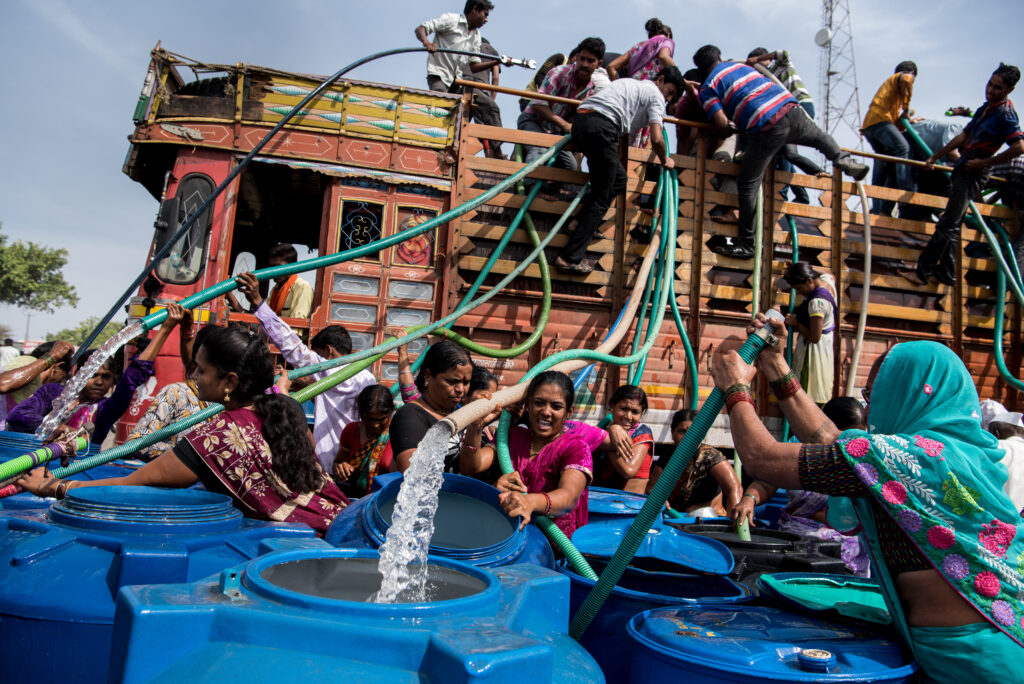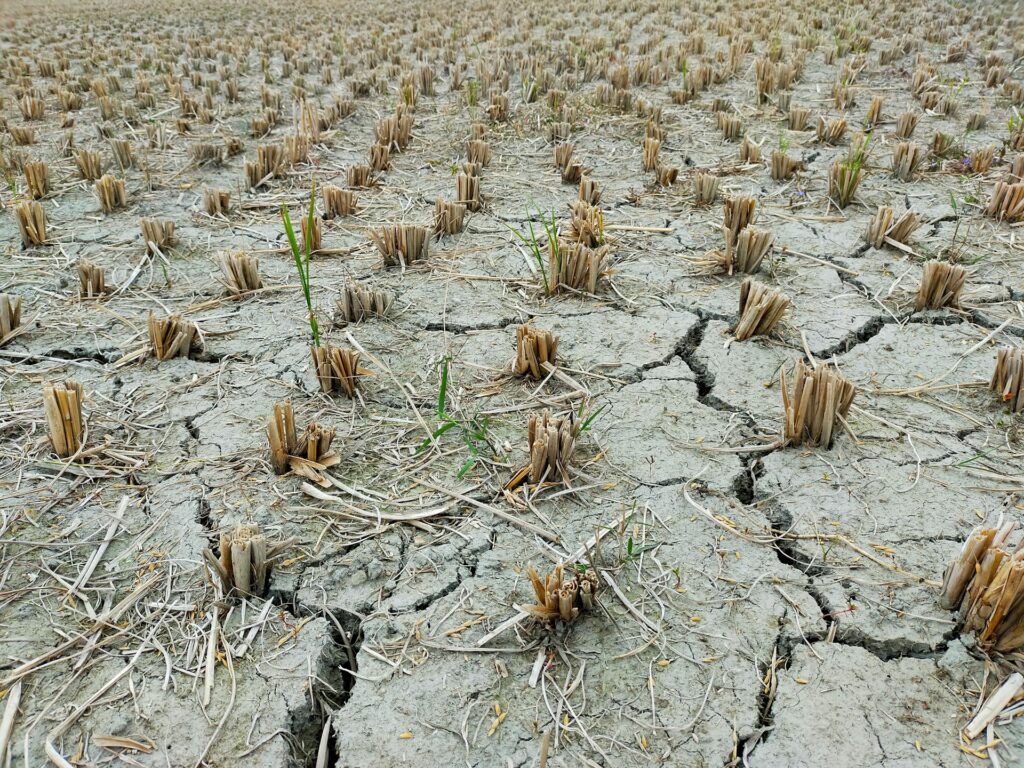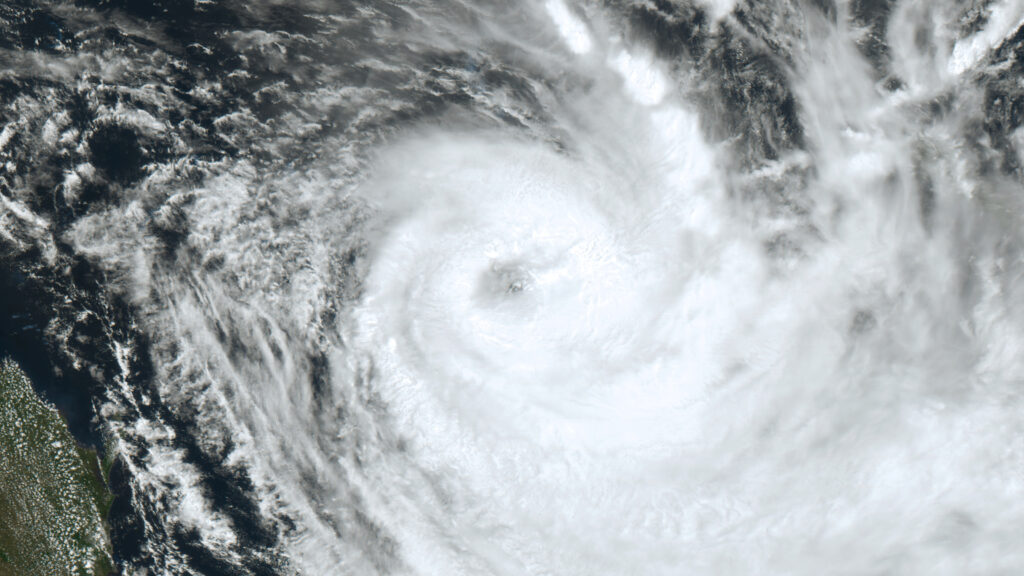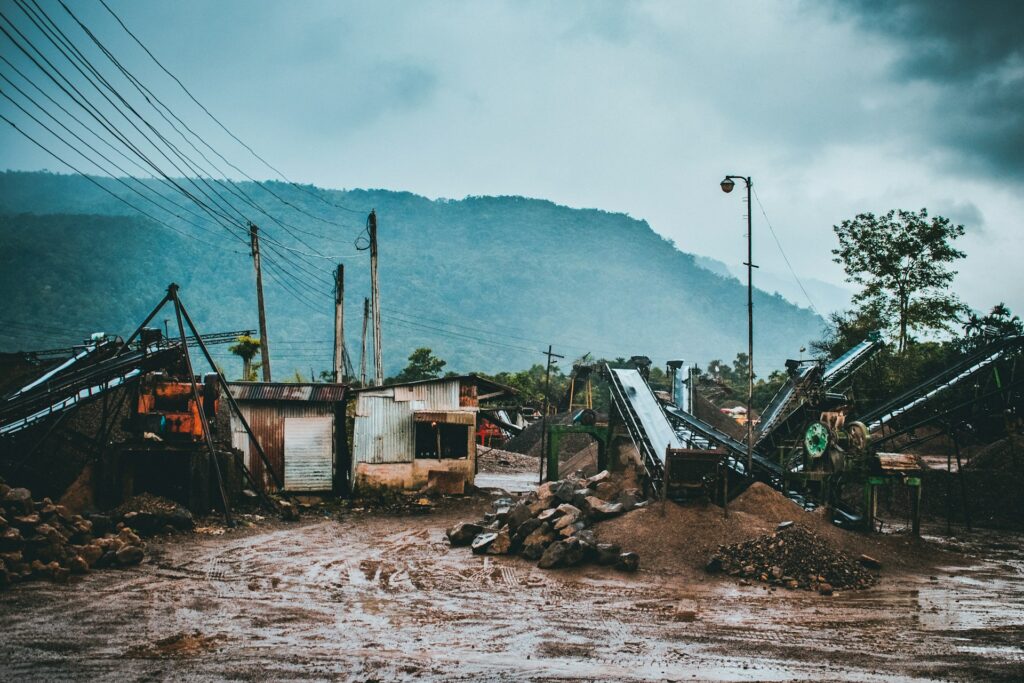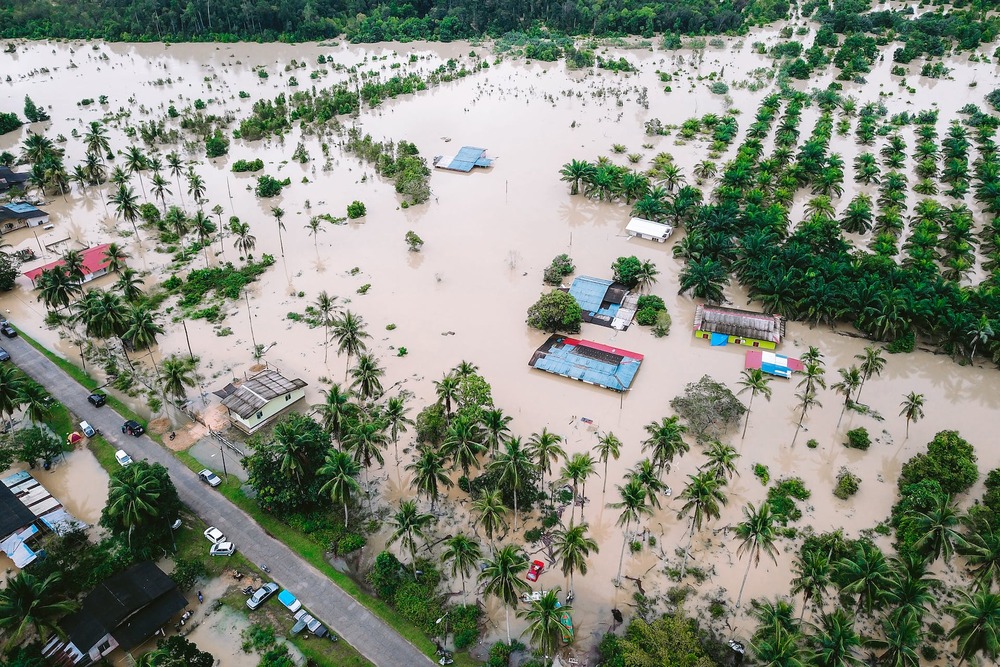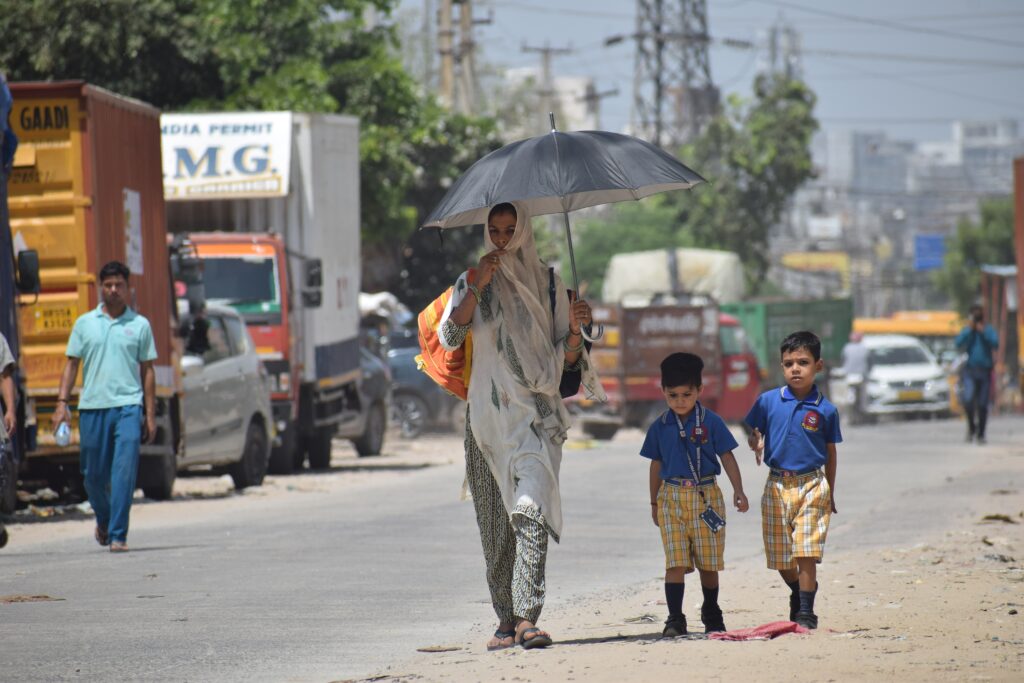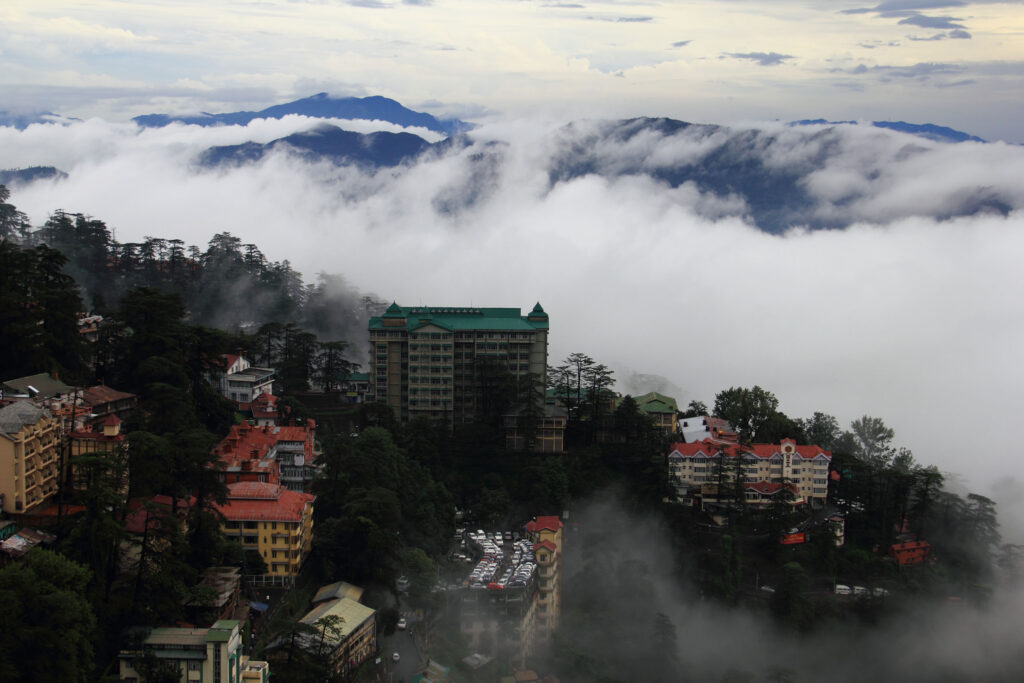The heat wave in Singapore was part of Southeast Asia’s “once-in-200 year” heat wave during April and May 2023. The record-setting extreme temperatures came as a surprise during the beginning of what is usually the region’s warm season, leaving countries across South and Southeast Asia scrambling to adapt to the impact.
Experts warn that this event “would have been ‘virtually impossible’ without human-caused climate change”.
Singapore Heat Wave 2023
Singapore saw progressively hotter days throughout April and May 2023. A reading of 36.1 oC hit the country on April 14, followed by a 36.2oC spike on May 9. This increase culminated on May 13 with a temperature of 37oC – tying with the all-time high set in 1983.
However, temperatures do not directly reflect how warm the weather feels. Humidity decreases the rate of sweating, which is one of the primary mechanisms our body uses to cool down. As a result, the “real feel” of the hot weather throughout April and May was significantly higher. Estimates put the highest daily maximum temperature on May 13 at around 43oC.
In June 2023, temperatures remained warm. This was brought on by El Niño-like conditions. Meanwhile, the Meteorological Service of Singapore expects El Niño conditions to solidify in the second half of 2023.
Singapore’s Heat Wave Forecast
As El Niño conditions come into full effect, rainfall during the country’s southwest monsoon season will decline. The 2015 El Niño event brought about 35% less rainfall than average, so experts are expecting a similar impact.
Along with less rainfall, warm temperatures typically remain warmer for longer, with the highest temperatures occurring the year after the El Niño event. March and April 2024 in Singapore will likely be hotter than normal.
Beyond 2024, temperatures will fluctuate with more extremes as global warming picks up steam. Multiple and concurrent hazards will intensify. Increasing weather variability and extreme weather events will continue to become more common in the coming decades.
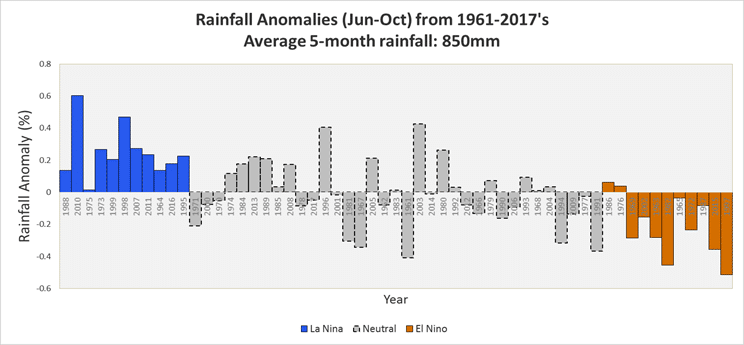
Is Singapore Getting Too Hot?
Singapore is getting hotter. From 1989 to 2020, the annual mean temperature rose from 26.9oC to 28oC. The country is heating up twice as fast as the global average, meaning 37oC days may become the norm by 2100.
One of the main reasons for this higher-than-average temperature increase is extreme urbanisation. The urban heat island effect can make areas in Singapore’s downtown up to 10oC warmer than the less inhabited forested regions.
The minister for sustainability and the environment predicts the country will experience peak temperatures of 40oC by as early as 2045. This will alter life in the country, making awareness and precaution for heat a daily requirement.
The Impact of Extreme Heat Wave in Singapore
The unique characteristics of the country, including its urban landscape and high population density, make Singapore particularly vulnerable to extreme heat events.
Already, residents struggle to cope with normal seasonal heat and heavily rely on air conditioning. Singapore has one of the highest per-capita rates of air conditioning units in Southeast Asia. This single-minded reliance is not only a concern due to energy infrastructure failure during heat waves but also perpetuates fossil fuel use, adding to warming temperatures and exacerbating adverse weather.
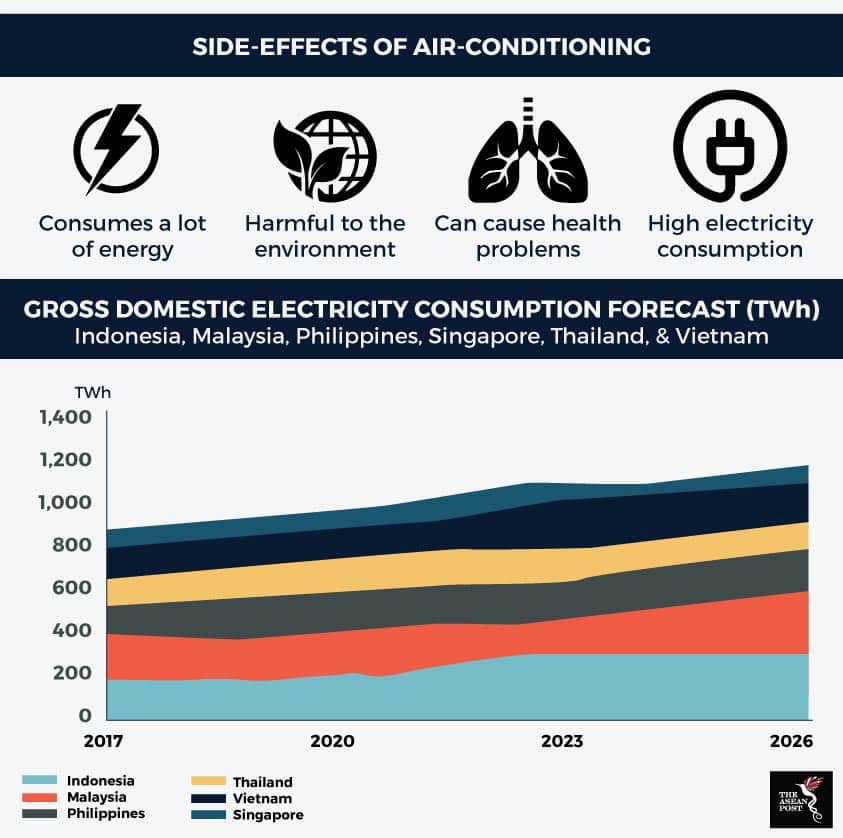
This dependence becomes a larger problem for low-income migrant workers, which make up 38% of the country’s workforce. This demographic typically has less access to air conditioning and often works outside or in factories, even during heat waves. They are at a much higher risk of getting heat-related illnesses due to these conditions.
Ultimately, as temperatures rise, workers will be forced to stay in cooler places, leading to a decline in economic productivity. South Asia as a whole is predicted to suffer labour productivity losses of up to 5% by 2030.
Climate Change in Singapore
These continually rising temperatures are linked to human-induced climate change. However, heat waves are only one of the major troubles Singapore will face as a result.
As an island nation, sea-level rise is a serious concern, as 30% of the country is less than 5 m above sea level. The Intergovernmental Panel on Climate Change’s (IPCC) Sixth Assessment Report predicts a global sea level rise of 1-2 m by 2100 and 5 m by 2150 if inadequate action is taken against climate change. However, even if sea levels don’t reach the 5-m mark, tidal surges and high tides will become a threat.
On a global scale, climate change will likely cause crop failure and significant land use changes, driving down agricultural productivity. For Singapore, which imports 90% of its food, declines in the global food supply and spikes in prices can be devastating.
As a nation, Singapore needs to build resilience and implement long-term adaptation strategies to handle these looming impacts.
Rising global temperatures are all but certain. Now the question is: how high will they go?
Eric Koons
Writer, United States
Eric is a passionate environmental advocate that believes renewable energy is a key piece in meeting the world’s growing energy demands. He received an environmental science degree from the University of California and has worked to promote environmentally and socially sustainable practices since. Eric has worked with leading environmental organisations, such as World Resources Institute and Hitachi ABB Power Grids.
Eric is a passionate environmental advocate that believes renewable energy is a key piece in meeting the world’s growing energy demands. He received an environmental science degree from the University of California and has worked to promote environmentally and socially sustainable practices since. Eric has worked with leading environmental organisations, such as World Resources Institute and Hitachi ABB Power Grids.



